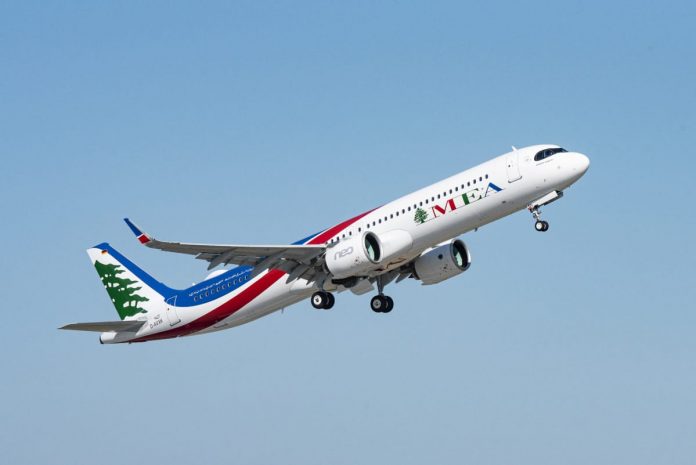In the past two weeks, Panasonic Avionics has won two new clients for its inflight entertainment and connectivity services. First, Middle East Airlines (MEA) signed for IFEC, and then yesterday it was the turn of Air Tanzania. In less positive news, fellow IFEC provider Global Eagle has officially entered Chapter 11 proceedings as of yesterday.

Panasonic flying strong through COVID
The news that Panasonic has snagged two new clients couldn’t have come at a better time for the provider. With many IFEC companies struggling to make ends meet, with fewer commercial flights and therefore fewer subscription payments coming in, a new commitment is most welcome.
Middle East Airlines (MEA) signed up for IFEC services for its new Airbus A321 aircraft. The first of these aircraft arrived earlier this month and is the first aircraft for the airline to feature WiFi connectivity. A further eight are in the pipeline for delivery, all of which will feature both Panasonic provided WiFi and its onboard eX1 entertainment system.
Chairman and director general at MEA, Mohamad El Hout, said of the partnership,
“MEA’s new aircraft is equipped with its state-of-the-art inflight entertainment systems including WiFi connectivity for the first time, reflecting the company’s ambition to provide customers with the best products the industry has to offer.”

In further positive news, Tanzanian flag carrier Air Tanzania has also selected Panasonic Avionics for its IFEC needs on its Airbus A220 aircraft. Panasonic already supplies IFEC for Air Tanzania’s Boeing 787 Dreamliners.
Now, the airline will upgrade to the eX1 IFE solution, as well as Panasonic’s next-gen WiFi service. Eng. Ladislaus Matindi, CEO & Managing Director of Air Tanzania, commented on the deal, saying,
“Operating our new A220 equipped with Panasonic’s IFE and Wi-Fi service brings together the right culture, values, and expertise to fulfil our goal of satisfying our customers—which is part of our vision.”

It’s two big wins for Panasonic in what is a challenging time for the IFEC industry in general.
Bankruptcy protection for Global Eagle
One company that is not doing so well in the current crisis is struggling Global Eagle. The provider has been facing financial difficulties for some time and is now looking to sell itself to lenders, including Apollo Global Management.
To facilitate the sale, the company and some of its subsidiaries yesterday filed for Chapter 11 bankruptcy in the United States. Now, under what is known as a ‘stalking horse’ asset purchase, all Global Eagle’s assets will be bought for $675 million by its lenders.

Joshua Marks, Chief Executive Officer of Global Eagle, believes this is a step in the right direction to ensure the future of the company, commenting in a statement,
“Today’s announcement represents a significant step forward that positions Global Eagle for long-term success as we continue connecting millions to high speed Wi-Fi and engaging content, anywhere, anytime.
“While we made important progress last year managing our cash flow and reducing operating expenses, we have been particularly impacted by COVID-19-related travel restrictions and demand declines in both airline and cruise end-markets. We expect to emerge from this process with a stronger balance sheet, significantly reduced debt and substantial liquidity, well-positioned to continue supporting our global customers into the future.
“We remain steadfast in our belief that our airline, cruise line and other customers will recover from COVID-19 and generate significant long-term demand for our services.”
Global Eagle has been faced with more challenges than some, as it was a major provider for connectivity on the beleaguered 737 MAX. With the grounding of the type ongoing, the disruption to Global Eagle’s operations has certainly taken its toll.
[ad_2]
Source link

